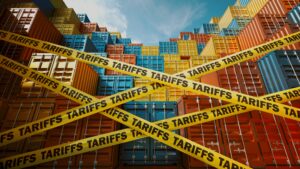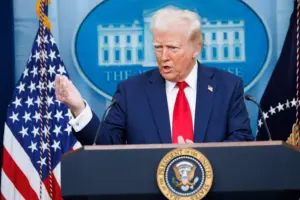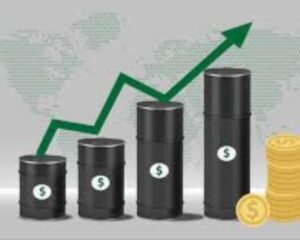Recently, Donald Trump has frequently made bold statements regarding tariffs during his campaign, including the potential for a 2,000% tariff on imported cars and a broad tariff as high as 50% on all imports. While these remarks may seem exaggerated, they are a key component of his plans for a potential second term, where tariffs would play a crucial role in funding his policy agenda.
High Tariffs and Trump’s Policy Goals
According to an analysis from the nonpartisan Committee for a Responsible Federal Budget, Trump’s campaign promises add up to over $10 trillion in spending. One of the few significant sources of revenue to fund these promises is tariffs, projected to raise about $2.7 trillion. Although this is not enough to fully cover all his proposed expenditures, in the most optimistic scenario, tariff revenue could reduce the overall increase in national debt.
To deliver on his promises of tax cuts and other large-scale fiscal projects, Trump is likely to impose unprecedented tariffs as a revenue source. Economist Brendan Duke points out that these tariffs could help address the budget challenges associated with Trump's fiscal policies, particularly in covering the cost of widespread tax reductions.
The Economic Impact of Tariffs
Tariffs are taxes imposed on importers, which are often passed on to consumers in the form of higher prices for goods and services. While tariffs can generate revenue for the government, they also increase costs for American consumers. Many economists are concerned that such high tariffs could have negative effects on the U.S. economy, especially as global trade tensions continue to rise.
Trump’s “Deal-Making” Approach
Trump is often seen as a master negotiator, but when it comes to trade, his strategies may not simply be posturing. As Mary Lovely, a senior fellow at the Peterson Institute for International Economics, explained, Trump’s trade policies during his first term showed that he is not just using these tariff threats as a bargaining tool — he is committed to implementing them.
Outlook
Trump’s plans for massive tariffs suggest that if he wins the upcoming election, the U.S. could see a more protectionist trade policy in the coming years. This would have a significant impact on global markets and the U.S. economy. Forex traders should closely monitor U.S. trade tensions with major partners and the potential effects of high tariffs on market volatility and economic growth.





